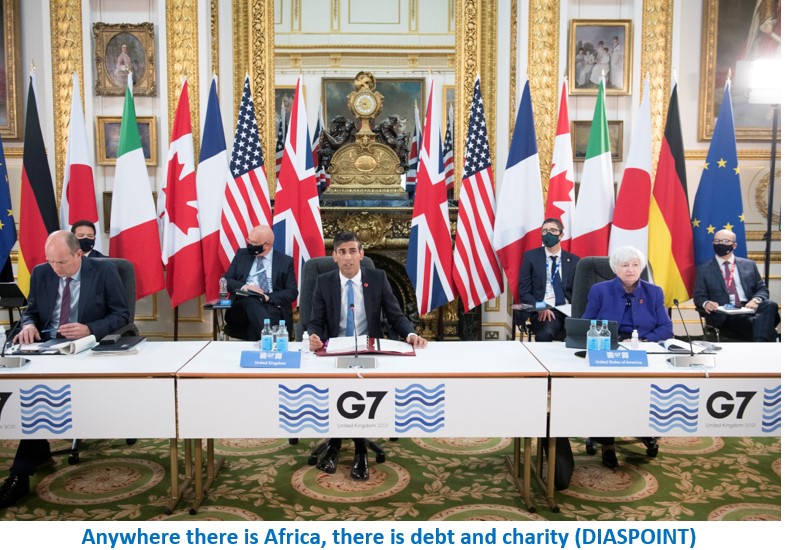Senegal Secures $2.7 Billion in Climate Finance From G-7 Nations
Post By Diaspoint | June 23, 2023

Senegal has secured 2.5 billion euros ($2.7 billion) of funding from Group of Seven countries to transition to cleaner energy, making it the first country that doesn’t rely on coal for electricity to get funding under such a program.
The so-called Just Energy Transition Partnership funding seeks to increase renewable energy to 40% of the West African nation’s electricity mix over seven years, President Macky Sall said Thursday at the Summit for a New Global Financial Pact in Paris. Renewables already account for 31% of its mix, he said.
“International partners and multilateral development banks”’ will make the finance available over the next three to five years, the partners – France, Germany, the European Union, the UK and Canada – said in a statement. “Additional financing may be mobilized during and beyond this period to support Senegal’s ambitions.”
The deal is modeled after one South Africa is pursuing with G-7 countries and several institutions to access $8.5 billion in climate finance. Other coal-dependent nations such as Vietnam and Indonesia are negotiating similar packages.
The program is an effort by some of the world’s most industrialized nations, which produced the bulk of the emissions causing climate warming, to help emerging nations invest in renewable energy and reduce their own output of greenhouse gases as they develop.
A JETP is now also being considered with Mongolia, French Minister for Europe and Foreign Affairs Catherine Colonna said.
Read More: The Big Plan to Help Developing Nations Go Green Is Foundering
Senegal currently relies on burning oil and gas to produce most of its electricity, rather than coal. In contrast, almost all of South Africa’s power output comes from coal, the dirtiest fossil fuel.
But the West African nation is also preparing to produce gas, using part of the output to boost its electricity supply, while also developing a liquefied natural gas industry for export.
The EU — one of the partners of the JETP — is treading a careful line between promoting renewables globally, while also having to protect its own energy needs in the wake of Russia’s war in Ukraine. The issue reared its head at COP27 — Europe was accused of using Africa as its “gas station” with countries like Germany tapping Senegal to help make up for its shortfall in Russian supplies.
The $31 billion economy is set to expand the most in sub-Saharan Africa this year after the first gas is produced from the BP Plc-backed Greater Tortue Ahmeyim field, International Monetary Fund projections show.
Read More from original source
